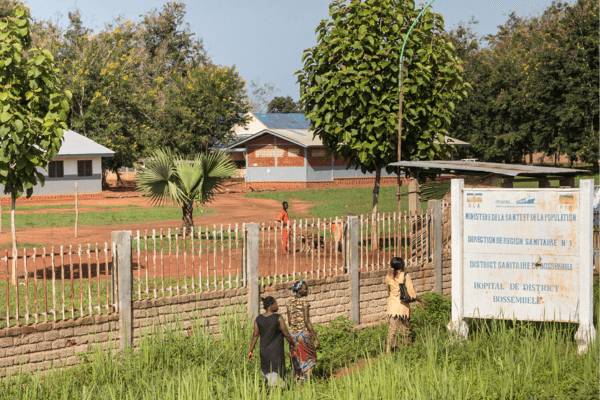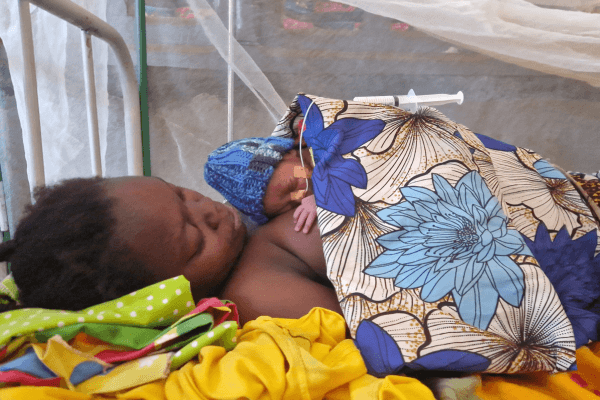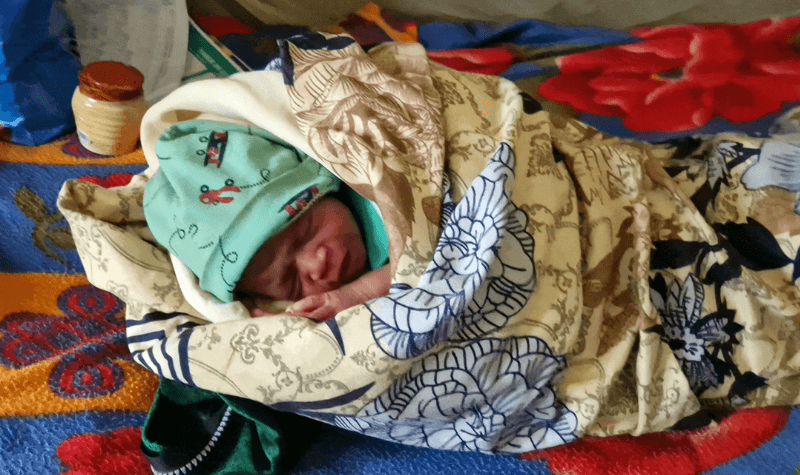Medical Care for Premature Babies in our Hospital in the Central African Republic
The Central African Republic has the second highest infant mortality rate in the world. At our hospital, we are committed to improving medical care for premature babies.
Despite all the progress we have made in the last 10 years, we only have limited treatment options for premature babies at our hospital. In recent weeks, we have been successful in caring for three babies born prematurely.
The Central African Republic has the second highest infant mortality rate in the world
Every year, 97 children still die for every 1,000 live births. Many premature babies do not have the easiest start in life, as healthcare is limited and access to high-quality neonatal care is restricted. The number of hospitals in the country is also still insufficient to cover the population’s medical needs.

That is why we started supporting the reconstruction and operation of a hospital in Bossembélé, 150 kilometers from the capital Bangui, in 2013. Since then, we have been running the medical facility and regularly send doctors to support the hospital staff.
Simone, a trained pediatric nurse, has been at Cap Anamur Hospital for six months since January. She is currently taking intensive care of three premature babies. Simone provided maximum therapy for the newborns in the monitoring room of the hospital’s maternity ward together with her colleagues on site.

The premature babies receive intensive care
This therapy includes intensive measures such as feeding via a gastric tube or supporting mothers with breastfeeding and drinking training with a syringe. As there are no heated beds or radiant heaters in the hospital for the care of premature babies, hypothermia is a major risk. Mothers are therefore instructed to warm their children using the kangaroo method. This also promotes mother-child bonding and stimulates breathing, as there are no breathing support devices.
Newborns with respiratory adaptation disorders, seizures or severe neonatal infections can therefore be well monitored, cared for and treated, despite the limited treatment options in the neonatal unit.

Another important aspect of our work is training medical staff and raising awareness in the community
Through targeted training, we can improve the skills of our staff and ensure that they understand and can respond effectively to the special needs of premature babies. At the same time, we are committed to raising awareness in the community to promote early prenatal care and a supportive environment for pregnant women.
This enables us to counteract the high infant mortality rate in the Central African Republic.

